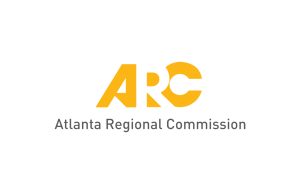Atlanta’s E-Bike Rebate Program: A Game-Changer for Commuting and Business
 Atlanta’s first e-bike rebate program has reshaped transportation, offering a cost-effective, sustainable alternative to driving. Backed by a $1 million investment from the Atlanta City Council and administered by the Atlanta Regional Commission (ARC), the initiative made e-bikes more accessible, particularly for low- and moderate-income households. This effort has reduced car dependency, eased congestion, and benefited both employees and local businesses.
Atlanta’s first e-bike rebate program has reshaped transportation, offering a cost-effective, sustainable alternative to driving. Backed by a $1 million investment from the Atlanta City Council and administered by the Atlanta Regional Commission (ARC), the initiative made e-bikes more accessible, particularly for low- and moderate-income households. This effort has reduced car dependency, eased congestion, and benefited both employees and local businesses.
Nearly 600 e-bikes reached Atlantans through this initiative, selected from over 11,000 applicants. The lottery-based program ensured equitable access, with 82% of rebates awarded to income-qualified recipients, exceeding initial targets. Rebates ranged from $500 to $2,000, making e-bikes a viable transportation choice for more residents.
The impact on commuting has been substantial. According to ARC’s 2024 Year-End Report, 74% of rebate recipients now ride their e-bikes at least twice a week, leading to a 40% reduction in driving. Among income-qualified recipients, 62% rely on e-bikes for commuting more than other participants. This shift has resulted in fewer cars on the road, reduced congestion, and progress toward Atlanta’s sustainability goals.
The program has also injected over $1.2 million into the local bike economy, boosting sales at 12 participating Atlanta bike shops. Even those without rebates have shown increased interest in e-bikes, demonstrating a broader shift toward alternative transportation.

For Buckhead employers, this trend offers an opportunity to support a more reliable, financially stable workforce. Employees commuting via e-bike face lower costs and fewer delays due to traffic or transit disruptions, leading to a more predictable, stress-free journey to work. Companies encouraging e-bike commuting align with sustainability initiatives and reinforce their commitment to a greener future.
The success of this program has sparked discussions about future expansions. City officials are exploring additional funding, with potential 2025 initiatives focused on simplifying rebate categories and refining eligibility. In the meantime, Buckhead businesses can take proactive steps by providing secure bike storage, offering commuter incentives, and fostering a workplace culture that embraces alternative transportation.
As Atlanta advances its commitment to sustainable mobility, Buckhead employers and residents have an opportunity to build on this momentum, creating a more connected, efficient, and environmentally conscious city.








